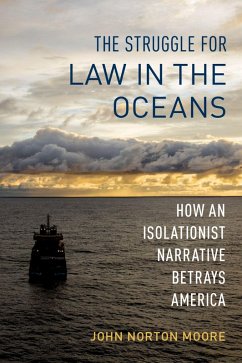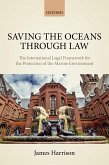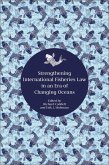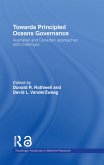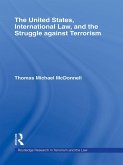During the 1970s and 1980s the United States led the world in negotiating one of the most important treaties in history, the United Nations Convention on the Law of the Sea (UNCLOS). Through these negotiations the United States secured the largest area of maritime jurisdiction in the world-an area larger than the continental United States itself-and protected navigational freedom, so critical for Naval mobility. The United States was also recognized as having access to four deep seabed mine sites, each roughly the size of the State of Rhode Island, and each containing approximately a quarter trillion dollars in strategic minerals. Today UNCLOS is in force for 168 countries and the European Union. Isolationist arguments, however, have for a quarter-century prevented the Senate from voting on the Convention. This book is about the potential damage to American national interests caused by this isolationist narrative. It discusses the robust reasons favoring the Convention, and offers a sharp critical examination of the arguments still being made against it. John Norton Moore posits that isolationist obstruction has cost the United States two deep seabed mine sites, "USA-2" and "USA-3," for a loss of a half trillion dollars in strategic minerals, and shows how a continuation of this narrative threatens the loss of "USA-1" and "USA-4" for another half trillion dollars-all while China has acquired four deep seabed sites and the Russian Federation three. In this ground-breaking, and vigorously argued new work, Moore asserts that it is time to accede to the Convention, as has been urged for decades by Presidents from both sides of the political divide.
Dieser Download kann aus rechtlichen Gründen nur mit Rechnungsadresse in A, B, BG, CY, CZ, D, DK, EW, E, FIN, F, GR, HR, H, IRL, I, LT, L, LR, M, NL, PL, P, R, S, SLO, SK ausgeliefert werden.

